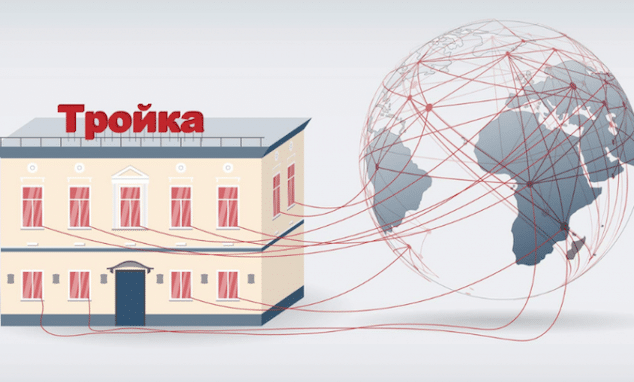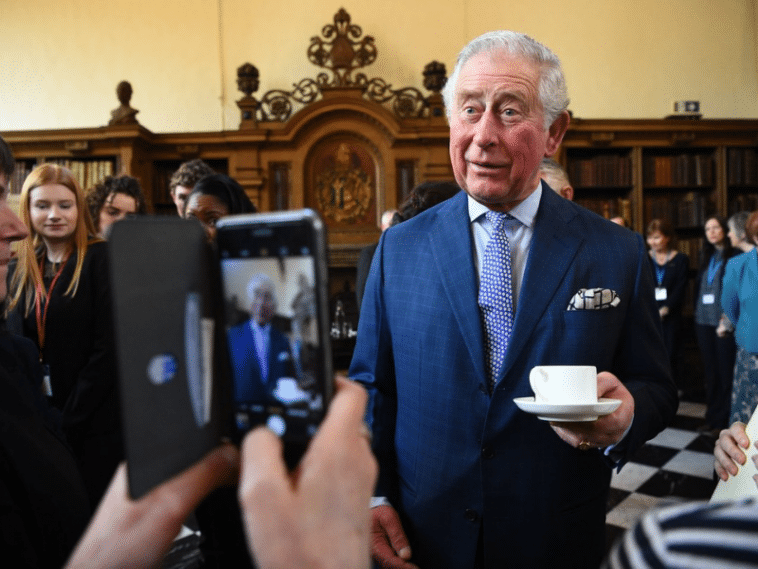

The Troika Laundromat: The Russian Money Laundering Scandal goes deep and wide. Understanding how the ‘loose bits’ are beginning to tie up.
The words ‘Donald Trump’, ‘Russia’ and ‘Money laundering’ have haunted the President of the United States of America since the day he took office, but the latest round of report on dirty Russian money in the global economy look to have implications far wider than the Oval Office.
According to the latest reports on the issue, there are now several large banks drawn into the investigation, which is being carried out simultaneously by authorities in the United States, the United Kingdom, and several major European nations.
Banks implicated in the scandal either knowingly or unknowingly include Deutsche Bank, Amro and Danske Bank. The International Monetary Fund currently estimates that anything up to five percent of the world’s GDP may come from money laundering. In terms of cash value, that adds up to two trillion dollars per year.
What is money laundering?
In simple terms, laundering money involves deliberately concealing the criminal origin of funds by transferring it through a series of transfers and other transactions via legitimate businesses or business interests.
As an example, a firm which provides a service can provide an invoice for a service that never occurred, and accept ‘dirty’ money into their bank account in return for that non-existent service.
This could be small scale, for example, a mechanic providing an invoice for services to a car that never happened and banking money for that service. They could also be large scale, for example selling a property for much more than its market value so that funds can be accepted for completion of said purchase. Once the money has ‘legitimately’ entered the system through such an invoicing process, it can be transferred away to other accounts or places free of suspicion.
Investment schemes also make good candidates for money laundering, as once money has been invested, it goes through a complex series of transactions before being returned as profit or dividends. The intricacies of investment operations make it hard for both police and the public to identify money laundering; much like the processes that govern slot games on sites like UKSlotGames.com, there’s an element of ‘risk and reward’ to investments whereby sometimes people will pay in and receive a lot of money in return, and other times people will pay in and receive nothing at all.
With small and large transactions heading in both directions, the true origin of the funds is difficult to trace. While paying money into a slot game is an accepted recreational activity, paying into a knowingly fraudulent investment scheme is a crime.
The Troika Laundromat
The specific scheme that’s being investigated by the coalition of authorities has become known as the ‘troika laundromat.’ The term refers to a collection of ‘shell’ companies which are based offshore and serve no purpose other than to handle money. In this case, there are believed to be at least seventy such companies, all of which are either owned by or linked to Russian organized crime. The companies have been used to filter money from Russia into legitimate western banks and other financial institutions. The name comes from Troika Dialog; a Russian investment bank of which an independent arm is believed to have been responsible for moving the money around.
Because Troika Dialog belongs to a bank owned by the Russian state, there is suspicion that those responsible for laundering the money are agents of the Russian Government.
Nobody can say precisely how much money has been laundered so far. Estimates place the figure at somewhere around $5bn, although it could be significantly more or less. Closer to $9bn was moved between companies managed by the bank during the time period that’s being investigated, some of which may have been legitimate funds. More is expected to become known about the scale of the operation as the investigation continues.
The situation is further complicated by the unclear ownership structures of the shell companies. Instead of an easily-identifiable individual or group of persons being in charge of the companies, so-called nominees were used instead. Nominees have the power to act on behalf of an organization’s real owners, without having any ownership rights to the company. Some of the named nominees found to have such signatory authority over the shell companies include Russian cleaners and beauty shop workers; people who would have no legitimate interest in holding or transferring such vast sums of money.
The very fact that such a process is legal is of significant frustration to many authorities and regulatory bodies. The process invites false representation and leads to problems exactly like the one that the investigation is now dealing with.
As of yet, the Russian Government has offered no formal comment on the investigations, other than to say that they already have the correct level of checks and balances in place to ensure that illegal financial transactions do not occur within Russian banks.

So what happens next?
The picture for recrimination and enforcement is a murky one. Clear identification as to who, collectively or individually, is responsible for the money laundering will be difficult to obtain. If the Russian state is identified as being responsible, it’s almost inevitable that they will ignore any attempt to prosecute them from abroad. If Russian individuals are deemed accountable, it’s equally unlikely that Russia will allow anybody to be extradited to face trial. The unsavory conclusion may be that nobody will ever be singled out as being responsible, and even if they are, no prosecutions may ever occur.
What may yet turn out to be more scandalous as far as newsworthy gossip goes is the list of names who may have accidentally been drawn into the scandal by making transactions with one of the affected banks.
Donald Trump’s name continues to be heavily linked, but Prince Charles also found himself in the press this week after reports revealed he’d received donations from one of the shell company to support the redevelopment of one of his stately homes. There’s been no suggestion that the future King of England would have had any awareness of the source of the money, but it does go to show that no substantial investment from an unclear source should ever be trusted.
I take the #TroikaLaundromat, (Zzzzzz…..) and I raise @pdvsa and @RRamirezVE: w/out question THE biggest #corruption scheme the world has never heard of. pic.twitter.com/ZZnb76xThm
— alek boyd (@alekboyd) March 5, 2019






